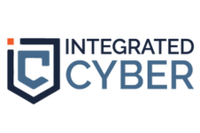Challenges of Cybersecurity Exacerbated by Global Labor Shortage
A global labor shortage in the cybersecurity industry is inhibiting companies from warding off costly cyber attacks. However, some post-secondary institutions are looking to combat that shortage.
Cybersecurity attacks currently cost US businesses $445 billion annually, and unfortunately that number is likely set to grow — attacks are increasing, and a global labor shortage in the cybersecurity industry is inhibiting companies from warding off these costly threats.
But while that labor shortage is certainly a problem, for some post-secondary institutions it’s becoming an advantage. At least some are beginning to redress the cybersecurity space’s labor issue by offering new, specialized cybersecurity programs.
Internet assault: cyber attacks from all angles
Cybersecurity threats are everywhere on the internet. Some, like recent attacks on Target (NYSE:TGT), Home Depot (NYSE:HD) and Dairy Queen, are financially motivated, while others, like the Sony (TSE:6758,NYSE:SNE) hack, are rooted in politics. Meanwhile, the hackers responsible for the recent Ashley Madison incident have attributed their actions to the website’s lack of transparency concerning customer data.
On the flip side, a recent assault on New York Magazine reveals that some attacks are seemingly senseless. The magazine’s new cover is an image of 35 women who have openly accused Bill Cosby of sexual assault; a single, empty chair sits in the bottom right-hand corner, intended to represent those women who have yet to come forward. However, just hours after its initial release, this image was rendered inaccessible due to a cyber attack. Self-described hacker ThreatKing (who communicates via the Twitter handle @Vikingdom2016) is claiming that he has successfully overwhelmed New York Magazine’s website with a distributed denial-of-service attack. In an interview with The Daily Dot, ThreatKing revealed that it wasn’t the magazine’s striking cover story that motivated the attack, but rather a general dislike of New York City. “I’ve seen many pranks gone wrong at new york. That got me pissed, That’s why I chose New York,” wrote ThreatKing over Skype, clarifying, “I have not even seen the cover, LOL.”
Educational institutions respond to industry need
The above incidents reveal that no matter how inconsequential the motivations behind a cyber attack may be, all have the potential to be harmful. Companies thus have to be prepared to guard against, and respond to, cyber threats head on.
However, as mentioned, the cybersecurity industry is currently in the midst of a significant labor shortage. In an interview with CSO, Symantec (NASDAQ:SYMC) CEO Michael Brown stated, “the demand for the [cybersecurity] workforce is expected to rise to 6 million [globally] by 2019, with a projected shortfall of 1.5 million.” Brown’s forecast is in line with the Cisco 2014 Annual Security Report, which estimates there is going to be a worldwide shortage of 1 million information security professionals.
Luckily, educational institutions are beginning to invest in programs to train cybersecurity experts. On Tuesday, Kaplan University announced the introduction of two new degree programs: the Bachelor of Science in Cybersecurity and Master of Science in Cybersecurity Management. These programs, and others like them, should help to fill the labor shortage in this vital industry, which currently costs $1 trillion each year globally. These young graduates will have to be ready for a wide range of threats, as the question is not “if” but “when” the next major cyber attack will occur.
Securities Disclosure: I, Morag McGreevey, hold no direct investment interest in any company mentioned in this article.
Related reading:

